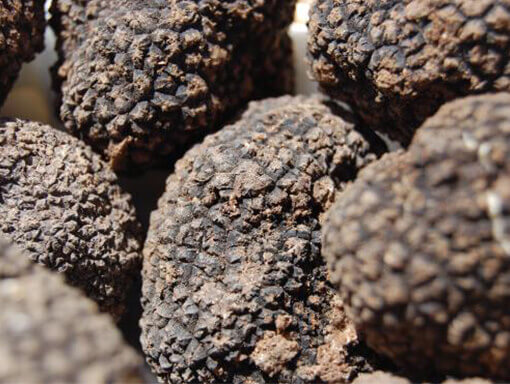Truffle Farms Europe Ltd, is offering investors the opportunity to invest in French truffle farms. The truffle is a sought after delicacy which at this time has a significant supply and demand imbalance. The structure of the investments is the purchase of Mediterranean oak trees and the rights to harvest “Perigord” truffle for 15 years. The opportunity to invest in the Perigord, which has also been called the “Black Diamond” is an interesting and potentially very profitable prospect for one’s portfolio.
According to your literature, the demand for truffles is outstripping supply. How do you see this trend developing in the next five to 15 years?
Currently over 80% of world truffle supply is from wild/foraged sources (there is no difference in quality between farmed/foraged per se) and the continuing long-term drought in the principal three Mediterranean countries of Spain, France and Italy is going to continue to exacerbate the supply problem. Whilst our ability to improve yields and get to crop faster will see supply improve, this will only be fractional against ever increasing demand.
Truffle farms take a long time to come on stream and the kind of volume of hectarage (1,000s of hectares) required to bring supply to a level that will significantly impact global truffle prices, will not be achievable for many decades.
Where does the greatest demand for truffles come from?
Historically it has resided in the fine dining restaurants of Europe. However, in the USA alone, the market value has grown from $4m to $30m in the last 12 years, with only supply holding that exponential growth back. Further demand from the new wealth within BRIC and MINT countries is adding to this trend, which is set to continue for years to come.
Why do French truffles command a premium price over other sources?
Ultimately it’s the old mantra of “terroir”. The black winter truffle we grow is called the “Perigord” truffle and France is recognised as its natural home. I suppose it’s a bit like champagne. The original sparkling wine of France is Blanquette de Limoux from the Languedoc in Southern France. It’s delicious and for many down there, easily matches champagne, but who is aware of it outside France? Maybe it’s just that the Monks of Champagne were better at marketing than the Monks of Limoux!
Can you give us some background about the board of directors? What is their experience in the field?
We are a lean business – I am the sole founder and director of the business. My first career was in agency side advertising, then as an Intellectual Property Lawyer. Prior to that, I had a career spinning out companies from the university sector, as well as managing small investment seed funds for both the public and private sectors.
My truffle and farming management knowledge has been built up as a layman working with Dr Marcos Morcillo and the team over a number of years, as we developed world leading truffle propagation science. Spending unnecessary investor money on people with reputations who can add a lustre of financial gloss to a business but, at this stage, can add nothing to the capability to acquire, plant and develop truffle farms, doesn’t seem to be a good investment of our client’s money. Since we neither need nor are seeking to raise money from financial institutions, adding “names” to our board that will impress at that level is irrelevant.
I take further counsel from financial experts and David Mace, who as we grow, is likely to become the Chairman of the company. David has extensive international plc board experience (AIM and Main Market), having been both a NED and NEC on companies including Centre Parcs (UK) PLC and GW Pharmaceuticals PLC. He has much experience developing privately and VC supported businesses through key growth rounds and IPO. David was also the founder of the Sea Life Centres, which he grew from the single original unit at Weymouth to an IPO which was sold to Merlin Entertainments. Sea Life now has 50+ centres spanning the globe.
The company’s finances are managed under contract with a highly reputable firm of Edinburgh based Chartered Accountants. When required and justified, a suitable CFO will be sourced and appointed.
What is the experience of the company personnel in this area?
See above and of course – we have the services of Dr Marcos Morcillo and the team at Micologia Forestal & Aplicada – widely regarded in the industry as a world scientific leader in truffle tree development, inoculation and plantation husbandry techniques.
If the company ever goes into default, what rank are the clients in the list of creditors to be paid first? (are they ranked above the suppliers or bank debt)
Our truffle farms are placed in separate SIV’s (UK – non trading companies). In the unlikely event of TFE failing, the estates would be protected for our clients.
Who are the company’s auditors?
We are not sufficiently large enough yet to require to be audited. Truffle Farms Europe Ltd is not due to publish its first accounts until April this year. As a projects’ based business, we have been in operation since 2012 building up our truffle tree holdings. We did not create a trading arm until July 2015, which was in preparation for the time that we were confident that we could offer a robust and credible investment programme to prospective clients.
Will the company publish audited accounts?
We certainly will when obliged to do so.
Are any insurances offered against theft, disease, fire, pollution damage, third party damages?
Our first four year old trees will be planted out in March 2017 and it is at that time that a specialist Lloyds insurer will come and quote against the physical estate with trees planted. We plant the Mediterranean oak tree, one of the most robust trees in the world. The risk of truffle crop failure and tree loss to disease is minimal with this species. The symbiotic relationship between the tree and the mycorrhiza (that produces the truffle) on the roots makes the trees even healthier. A full risk analysis is provided in the terms and conditions. Interestingly, truffle farms have also proven an effective fire break tool in a number of countries.
What are the tax implications of investing in truffle farms?
In terms of VAT, people are buying a food producing plant – standard HMRC exemptions mean it’s VAT free for UK customers.
Under HMRC BIM67701 – There is no tax chargeable on income and profits arising from the commercial occupation of woodlands.
Capital Gains Tax: Further, the increase in value which is attributable to standing or felled timber is free from Capital Gains Tax.
Inheritance Tax: After two years of ownership/occupation, the value of commercial woodland is excluded from IHT as business property.
These provisions are attributable to any forestry planted in European Economic Area (EEA).
Additionally, in France, truffles are free of income tax for 15 years from the date of tree planting.
Are these tax benefits also applicable to European investors and what are Ethical, Ecological, Environmental and Sustainable benefits you mention in your literature?
Whilst tax benefits are currently in place for UK based investors, all countries of the EEA signed up to an Accord to encourage the replanting of long term deciduous forests. This is an attempt to redress some of the devastating loss of forests in Europe. Consequently, most EEA countries apply a range of tax benefits as a long-term commitment to this objective and in recognition of the time it takes to develop forests to maturity.
We didn’t actually design-this-in to our offering and were very pleasantly surprised to have these tax benefits brought to our attention as we began developing our tree holdings. Interestingly, we are probably the only company in the world offering a forestry investment with these tax benefits and are the only one likely meeting the ideological principles the Accord was intended for, i.e. the regeneration of long term European deciduous forestry.
Much of the forestry that is taking advantage of these tax benefits, is grown in Scotland. However, the industry here is dominated by fast rotation mono-culture 25 – 30 year Sitka Spruce planting. Neither is this native to Scotland, nor does it provide a diverse habitat for the development of fauna and flora. Even in remote parts of Scotland, UK land prices are above those in France. Adding to that, the scale required to justify this type of forestry investment, makes it the soul preserve of the rich. Forestry is invariably represented in the portfolios of the wealthy, as a key generational investment for family based wealth preservation.
The uniqueness of our offering, is that we can not only offer an investment that is open to the ordinary investor, without pooling, it also delivers by its very nature the tax benefits that are intended at the most rigorous environmental auditable levels, with annualised and increasing incremental cash returns.
Lastly, Quercus Ilex (The Mediterranean Oak) and the other trees we plant, are in their natural habitat and are in fact one of the most efficient carbon capture trees there are. They will produce truffles for up to 60 years if well maintained and can go on to be a vast and valuable source of carbon retention, as well as providing the highest grade wood when they are eventually felled.
Will clients have to pay any monthly or yearly fees?
Possibly, particularly if they choose to have future spore treatments that will enhance crop yield. At the time of purchase, all existing such treatments are priced in, but as truffle propagation science develops, there is likely to be new treatments available. In fact, there are three new treatments Marcos and the team have developed since we started in 2012. Clients have the option to use these and will be given the relevant pricing options. However, crop yield forecasts are based on our current science, so there’s no loss if they don’t. This is set out carefully and in plain language in our Terms and Conditions.
What is the structure of the investment? Will clients own shares in the firm?
The clients purchase the trees and a cropping rights licence. They also have a contract with the firm to manage the plantation, sell the crop annually and seek a disposal of the plantations after the holding of 15 years or before if we can deliver the forecast returns and the client wants that.
How is the value of the initial trees calculated?
We produce the trees from acorn ourselves, so there is no wholesale purchase and sell on. This is fundamental to the total control process “from-acorn- to-plate” that allows us to be able to deliver the yields that make this the quality of opportunity that it is.
We thank Mr Martin Waddell for providing more information about the opportunity his firm is offering in Truffle farm investing.
Visit : Truffle Farms to discover more about their product offering.










